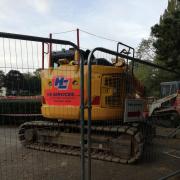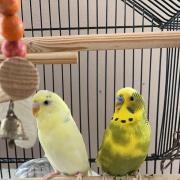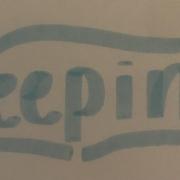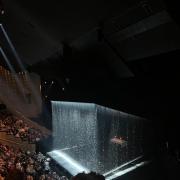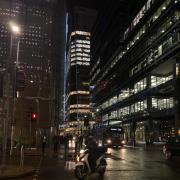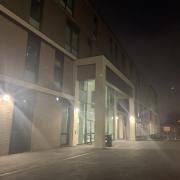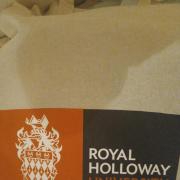
I, Cinna (the poet) is a production that lasts just over an hour but still manages to give much food for thought. It is a monologue written to illustrate the emotional turmoil of Cinna, a minor Shakespeare character in Julius Caesar (leading up to his brutal death). The show is written and performed by Tim Crouch who gave an exceptional performance that kept the audience fully engaged throughout.
The show was quite unlike anything I have seen before in terms of audience involvement. At the beginning of the show, each audience member is given a notepad which is theirs to keep. Throughout the show, the audience is asked to write things into the notepad that relate to what is happening in the show. For example, “It must be by his death’’. This feature of the production really helped the audience to relate to the story and feel they are part of the production.
The costume worn by Tim was a t-shirt with the words ‘This is what a poet looks like’”, trainers, jeans and a blue jacket. This simple costume choice was effective in keeping the focus on the words being spoken, rather than on Cinna himself.
Similarly, a very simple set was used. There was no real scenery to speak of, only a limited number of practical props. The key focus again being on the words spoken.
The power of words is a key takeaway from the production. This is shown multiple times, for example the fact that Mark Antony changes the minds of a grieving people by giving a convincing speech. Or the fact that Cinna the poet is killed because his name is the same as somebody else’s. The play starts in a very calm manner with Cinna saying he is powerless because all he has is words but by the end of the play everything is in chaos and the words people are speaking are changing the course of history.
The blocking was visually very interesting, as the way Cinna moved reflected his emotions. For example, when he feels despair, he sits at his desk with his head in his hands, but when he is being anxious, he makes sharp sudden movements and paces up and down.
The performance had an element of spontaneity. The audience was asked to shout out questions which Cinna would then comment on.
Music was used successfully to create an atmosphere of rising tension, as it is clear Cinna is unsure how to react to the events of Caesar’s death.
The production was brought up to date with the projection of video clips depicting police brutality. These clips really aided the audience in their visualization of the events taking place outside Cinna’s home.
I would thoroughly recommend a visit to this production, to experience the revelation first-hand that words are the most powerful tool we have.
By Georgina Featherston








